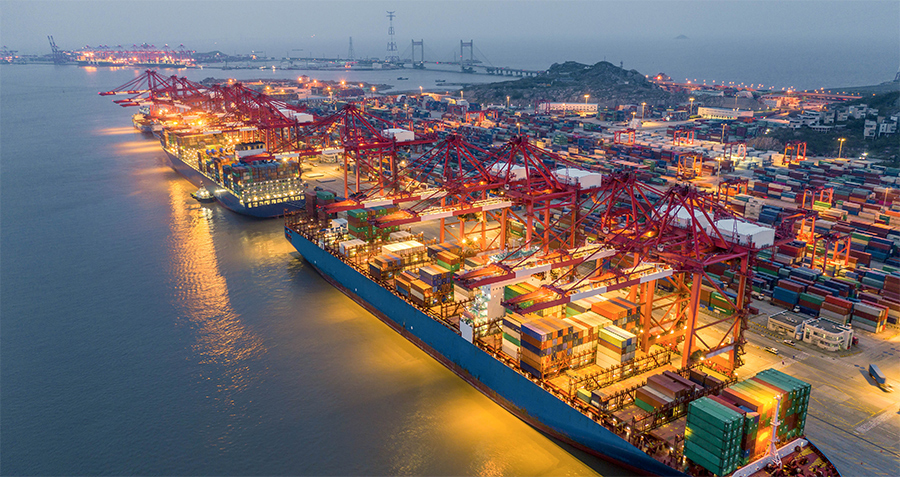Much of the west, especially the US, once imagined itself as a land of freewheeling enterprise: the gods of the marketplace reigned supreme and government was a minor obstacle on the path to glorious riches. Since the outbreak of the financial crisis, cracks have appeared in this vision, sometimes known as the Washington consensus, as countries seek new ways to grow under a more cautious regulatory environment.
But western companies need not look any further than the world’s number two economy for an object lesson in how to mix government involvement and private enterprise. It is imprudent to think any country–even successful China–has found the right balance between public and private sectors, but for now, foreign companies would do well to pay attention to the government half of the equation when doing business in China.
PARTNERS NOT OBSTACLES
At a 2011 China-British Business Council forum, Liu Jing, Associate Dean and Professor of Accounting and Finance at Cheung Kong Graduate School of Business (CKGSB) said, “A crucial element for a successful firm is to adapt to the local conditions, which requires a long commitment to and deep investment in the Chinese people and culture. ‘A [foreign] business with Chinese characteristics’ should yield a successful business.”
For Liu, localization in China means alignment with government policy. Pointing to fields like medical technology and private equity, Liu singled out sectors that will benefit greatly from government policy and could provide many opportunities for cooperation with foreign firms. Biotechnology, which includes everything from biomedicines, new vaccines for disease prevention, advanced medical equipment and even extends to marine biology, has been listed as one of the country’s strategic industries, which will receive considerable government support via subsidies, tax breaks and other preferential policies over the next decade.
Private equity, which remains at its infancy in China, is also a key growth industry. Ask any investment banker or economist and one of the first problems they identify about China’s economy is an underdeveloped capital market.
“China’s capital markets are immature and don’t properly allocate capital,” said Arthur Kroeber of research firm Dragonomics at a recent American Chamber of Commerce forum. “There needs to be a system in place that makes capital more efficient, otherwise we’ll keep having problems like the real estate bubble.”
The Chinese government is aware of the weak capital market infrastructure and is now boosting private equity with incentives and preferential policies. Given the complexities of investment banking, China has opened its doors to foreign PE funds to work with Chinese partners or on their own to provide the country with much-needed expertise and experience in fundraising and capital allocation.
GET THE JOB DONE
According to Liu, Chinese government bodies devote immense resources toward achieving their goals–“When the government wants to develop the West,” for example, “it happens.” Therefore, he suggested, if a [foreign] company wants to develop, it should first find a local, provincial or national policy aligned with its own corporate goals. Of course, he said, this is no guarantee of success, but an SME that uses this strategy will have a much easier time in China than one that attempts to “go against the tide.” This is harder than it sounds, partly because working in China means working with China. In other words, you need a partner.
This can prove difficult: if a foreign company and its Chinese partner have different long-term interests or visions for the partnership, the foreign partner may find itself abandoned if the local venture starts to blossom. Therefore, realistic expectations and alignment of vision are necessary for short- and long-term success, explained Liu.
THE RIGHT STUFF
Chinese partners are essential for many reasons, not the least of which is the all-important guanxi–connections with other enterprises and the government. So how do you find the Chinese firm that has the right network?
It may sound ridiculous, but a picture sometimes really is worth a thousand words. A trip to a company like Huagong Tech, a major technology conglomerate based in Wuhan, reveals a lot about the group’s government support. Hu Jintao, Wen Jiabao and other members of the standing committee of the Politburo have all visited the firm–an impressive feat anywhere in the country, but particularly noteworthy given the fact that Hubei province is rarely on the top leaders’ itineraries.
The appearance of similarly high-ranking leaders in other countries might mean relatively little, but every move made by China’s most important politicians is scrutinized. This translates into firms garnering local and central government support, something which can be a game-changing advantage over other companies, said Liu.
But no matter how the foreign firm does it, the key is to get into this market. As Lord Green, UK Minister for Trade and Investment, pointed out at a forum earlier this year: “China, as a strong and emerging market…has seen spectacular unbroken growth over the last thirty years and is a market that is very important to the UK’s economic development. It is our key partner for growth.”



















